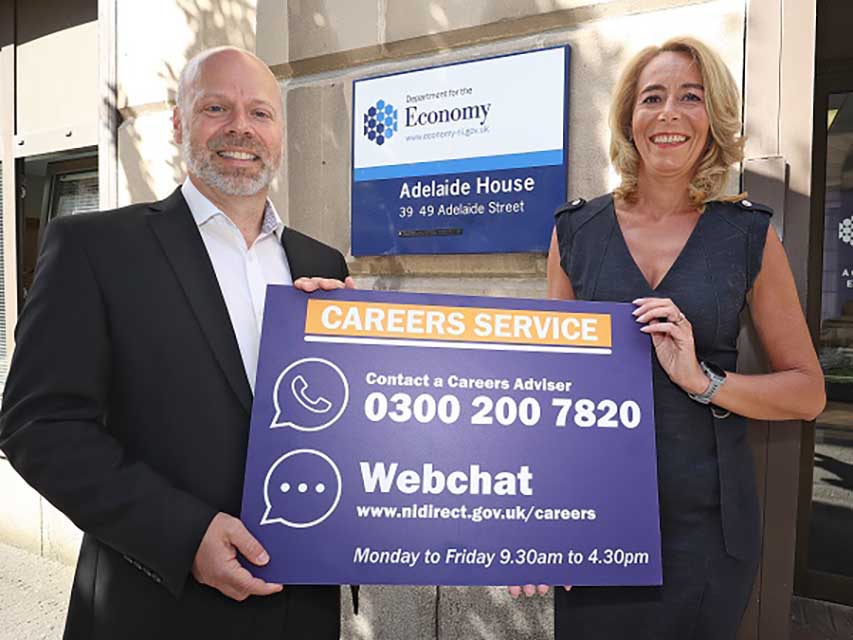Make an informed decision about your future career
Many students have spent years toiling over books and listening to lectures and any day now they will be receiving their GSCE and A-Level results.
But what then? what direction will they travel in chasing their dream (or nightmare?) careers?
Read this question and answer Question and Answer page to help get focussed on how to make proper informed decision about your career.
Q&A: Exam Results – What Now?
Q. What can the Careers Service offer me?
Professionally qualified Careers Advisers provide young people and adults with impartial advice and guidance on a range of career related issues, including apprenticeships and higher level apprenticeships, further and higher education, training, employment, and voluntary work opportunities.

Careers Advisers use up to date labour market information, including new and growing sectors, and knowledge of the skills and qualities employers are looking for.
Q. I did not achieve the required results for my chosen universities. What are my options?
If you are unclear or confused about your next move, particularly if you did not get the grades you had hoped for, speak to a Careers Adviser.
They can help you decide on the next step which is right for you, and which will keep your career goals on track.
There are several possibilities available, depending on your own individual circumstances.
Options could include an alternative degree course, an apprenticeship or higher level apprenticeship, foundation degree courses, alternative qualifications, employment, self-employment or even a gap year.
Q. Where will future jobs be?
A number of sectors have been identified by the Department for the Economy as important in rebuilding and rebalancing the economy.
These sectors all need skilled and qualified staff and you should think about this when considering your future career options.
These sectors are ICT, Business and Financial Services, Advanced Engineering, Advanced Manufacturing and Materials, Agri Foods, Health and Life Sciences, Renewable Energy and Recycling, and Creative Industries and Digital Media.
Further information on these and other sectors is available at:
https://www.nidirect.gov.uk/articles/skills-demand
and from careers advisers.
https://www.economy-ni.gov.uk/articles/skills-barometer-2021-update
Q. What can I do at a further education college?
Further education colleges offer a range of academic, professional and technical courses. You can choose from a range of full time and part time options including apprenticeships, foundation degrees, extended diplomas and higher level apprenticeships (HLAs) etc. You can find out more at:
Q. What about apprenticeships?
If you want to start work an apprenticeship is a great way to get a qualification while earning while you learn.
You are trained to a quality standard and are available in almost all occupational areas. Learning takes place both on and off the job working towards the achievement of an industry approved qualification. Further information can be obtained from:
www.nidirect.gov.uk/apprenticeships
Our further education colleges and universities in partnership with local employers also offer higher level apprenticeships (HLA).
As HLAs are being agreed on an ongoing basis, your Careers Adviser will have a complete and up-to-date list of what is available. Those interested in exploring the opportunities provided through an HLA can also contact their local further education college. Check:
www.nidirect.gov.uk/higher-level-apprenticeships.
Q. What about training?
The Department for the Economy’s Skills for Life and Work programme and the Northern Ireland Traineeship programme could provide you with the tools and confidence you need to find work.
It offers training to help you gain the recognised skills, experiences and qualifications to help you progress into your chosen career.
For those who cannot engage in formal training, employment or education at this time, there are a number of other options that can be explored with your Careers Adviser.
For further information go to:
www.nidirect.gov.uk/articles/skills-life-and-work https://www.nidirect.gov.uk/traineeships
Q. Is employment an option?
If this is the option for you, Careers Advisers can help you to explore current job vacancies.
They can help support you with your job search activities including help with your CV, applications forms and to prepare for interviews.
The Careers Service website publishes monthly job posting trends information, provided by the Department’s economists and that is a really useful way to keep informed of current labour market information. This can be found at:
Online job posting trends 2023 | Department for the Economy (economy-ni.gov.uk)
There are more current and future opportunities in areas where there are skills shortages, in particular, those relating to Science, Technology, Engineering and Maths (STEM). Up to date labour market information is available on the following websites.
https://www.nidirect.gov.uk/articles/skills-demand
https://www.economy-ni.gov.uk/articles/skills-barometer-2021-update
To contact a Careers Adviser you can:
- Chat with a Careers Adviser online at: www.nidirect.gov.uk/services/chat-with-a-careers-adviser
- Call 0300 200 7820, or
- Go online at www.nidirect.gov.























